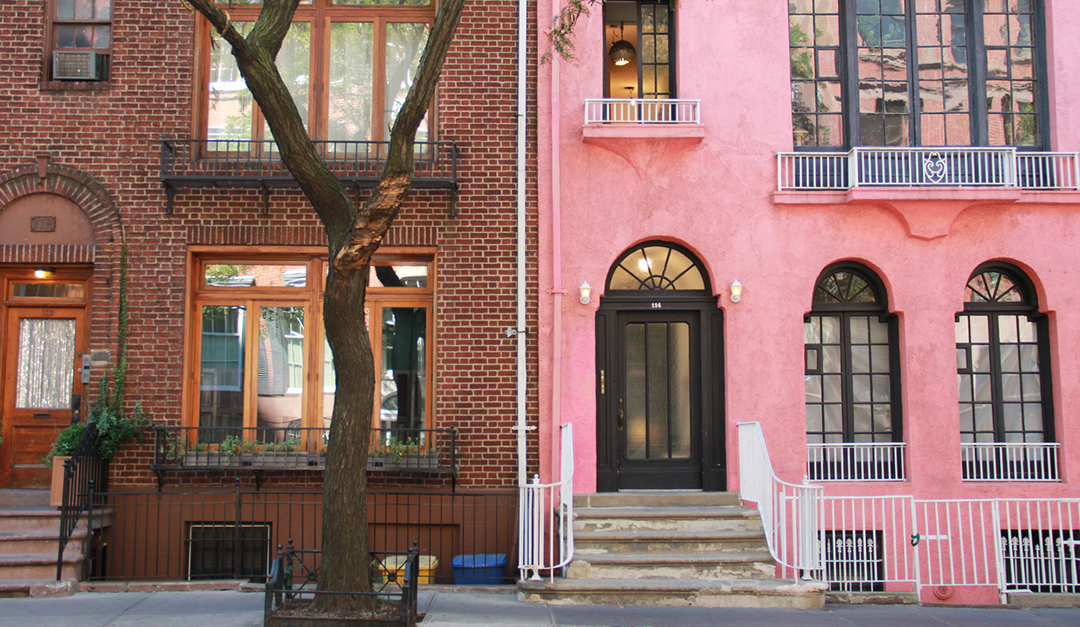New York City is experiencing a shift in its rental market in response to a new package of laws that enforces stronger tenant protections. The Housing Stability and Tenant Protection Act of 2019 was voted in on June 14, and brings with it new regulations such as limits on improvement-related rent increases and stricter processes for building conversions. These laws were reportedly enacted in order to combat abuses by landlords who take advantage of tenants by overcharging.
Various real estate groups, however—most prominently the Real Estate Board of New York—lobbied against these laws, stating that stricter regulations would, in the end, disincentivize landlords from maintaining rental units to high standards, as well as impact affordability and vacancy rates.
REBNY President John H. Banks released the following statement in response to these laws:
“The harmful impact of this legislation will be profound for New York City’s economic future. There are many losers including small property owners, contractors as well as tenants. This legislation will keep rent lower for some, but also significantly diminish housing quality and lead to less tax revenue to pay for vital government services. It will worsen the City’s housing crisis. The construction of future affordable units will slow, if not end altogether, the housing vacancy rate will worsen, and nothing will have been done to make it easier for those who struggle to pay their rent. There was a path to responsible reform that could have protected tenants as well as owners, jobs and revenue, but Albany chose not to take it.”
Louise Phillips Forbes, a licensed associate real estate broker with Halstead Real Estate, agrees that the enacted laws could be detrimental to the health of the rental market in New York City.
“My opinion is that the new overall tenant protections will largely impact the attitude and the philosophy and mentality of landlords,” she says.
Phillips Forbes believes that New York City is the leader for the rest of the country in real estate, and this shift could have a domino effect across the nation.
“The problem with the idea of doing it nationally is that you’re going to have an entire national process of paralyzed workflow. The food chain is going to get backed up and delayed,” she adds.
Reba Miller, senior sales executive and associate real estate broker with Berkshire Hathaway HomeServices New York Properties, believes that the new conversions law will have a particularly negative impact on the industry.
“If this law was in effect when I first got into the real estate market, I would not have had a career,” says Miller.
Here are some of the biggest changes ahead, and how they may impact the New York City rental industry.
New Rent Increase Thresholds Based on Improvements
In the past, a portion of renovation-related expenses incurred by landlords could be passed onto tenants as a permanent rent increase. The new law states that only $15,000 in renovation costs can be passed on, spread out over 15 years. That means that New York City renters could expect a maximum monthly increase of only $89 to their rent payment if improvements are made to their unit.
According to Phillips Forbes, this change could lead to lower standards in renovations.
“I find that when you can’t increase the rent and you have labor costs that go up, you’ve removed the incentive. There are going to be more violations and more neglect—more landlords doing the bare minimum,” says Phillips Forbes. “Never again will the landlord spend $125K to add new floors, a new radiator, etc. I represent a lot of people who want to find affordable housing and we’ve been able to do that, but not at the expense of paralyzing people.”
New Condo and Co-Op Conversions Rules
The new law states 51 percent of tenants must agree to a conversion in a rent-stabilized building (and to purchasing) before the state attorney general can sign off on a conversion plan. Previously, owners with a conversion plan needed only 15 percent of tenants to approve.
“I’m probably going to be doing one of the last development projects that will be a conversion if the political environment doesn’t change,” says Phillips Forbes. “It will be almost impossible to convert buildings with 51 percent, and this will devastate those individuals who have spent their lives’ fortune to purchase a building and do a conversion. If plans have not been submitted or approved, these conversations are going to be withdrawn.”
“To state now that 50 percent need to purchase in order for a plan to become effective may not have its full effect today given the market slowdown, but it will have some long-term effects for those property owners wishing to purchase buildings and create value, as many of the converters like Francis Greenburger, David Berley, Marty Raynes, Aby Rosen and Larry Gluck have done successfully,” says Miller, who adds that earlier conversions were like hitting the lottery. “There is no lottery anymore as properties are too expensive, the conversion process is costly, insider prices are no longer discount prices and the whole business has changed.”
The Termination of High-Rent and -Income Deregulation
Today’s landlords will have more difficulty deregulating apartments, if they are able to at all. The new law removed an existing option allowing landlords to deregulate an apartment if the occupant earned $200,000 or more per year. Additionally, the deregulation threshold, previously held at $2,774, has been eliminated.
This could impact the value of rent-stabilized buildings, causing them to drop 20-45 percent, according to the Wall Street Journal. In addition, there could be a market slowdown if owners have to sell for less.
Other changes include:
- More stringent tenant protections – Tenants can no longer be black-listed for not paying rent, paying it late or being a nuisance. In addition, late fees are now capped at $50 and security deposits are limited to one month’s rent. Landlords are also now required to return the tenant’s security deposit two weeks before their scheduled move-out date.
- Updated guidelines for preferential rent – Landlords with rent-stabilized apartments can no longer hike up rents to the upper limit during lease renewals.
- Removal of the vacancy bonus – Owners of rent-stabilized buildings can no longer increase rents by as much as 20 percent after tenants have moved out.
- Removal of “owner-use” loophole – Previously, landlords and their family members could remove tenants from multiple rent-stabilized units in order to use these apartments as personal residences—a process they were reportedly using to hike up rents. Landlords can now only claim one unit as a primary residence.
“The immediate impact is that we are going to see an entire shift in our economy, from landlords and tenants to contractors and suppliers of materials,” says Phillips Forbes.
 Liz Dominguez is RISMedia’s associate content editor. Email her your real estate news ideas at ldominguez@rismedia.com.
Liz Dominguez is RISMedia’s associate content editor. Email her your real estate news ideas at ldominguez@rismedia.com.











